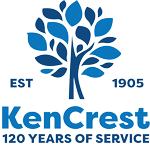You Can Only Move Forward If You Understand
I had the opportunity to walk around Boston as my husband rested before running the Boston Marathon. I often compare Boston to Philadelphia because so many of the revolutionary-era stories in history took place in both Cities. One of the big phrases of that era was “no taxation without representation.” Essentially the colonists were asking not to be taxed by the British, without having a voice within their governing entity and influence over the practices being imposed on them. They wanted to be heard!
One of the greatest opportunities of our era is to ensure the voices of the people we support are heard. Bad things happen when people make judgments without the voice of the people. Most of the dreams of “the people” are achievable and straightforward. In a growth mindset when we explore possibilities, we begin mobilizing resources as we listen directly to “the people.” Here are some examples of growth versus judgmental mindset.
Example #1
Judgement language: Homeless people are lazy, and it really doesn’t matter what we do, we can’t help these people.
Growth language: I had the opportunity to speak with a woman who was living in a shelter. She had lost everything when she was in her early 20s after being diagnosed with cancer. She needed treatment and was too sick to work during the chemo. She recovered but found herself starting over, and homeless. There are many other stories similar to this among people who are homeless.
Example #2 Judgement language: “My son worked years ago. People were mean to him and I had no trouble convincing him to return to the sheltered workshop.” (Told to me by a mom of a sheltered workshop client.)
Growth language: He never gave up his dream to try again. We helped him speak for himself and with tears in her eyes, his mom said, Okay I will get behind him. There are many other stories like this of everyday dreams well worth supporting!
We have opportunities, let’s grab them and always do our best do take action by:
- Bringing people to the table to be heard,
- Listening and using what we’re learning to open up possibilities,
- Sharing the realstories when someone jumps to conclusions.
When we have deep appreciation for each other as equally important human beings, we will build a stronger, more caring, more equitable community.
